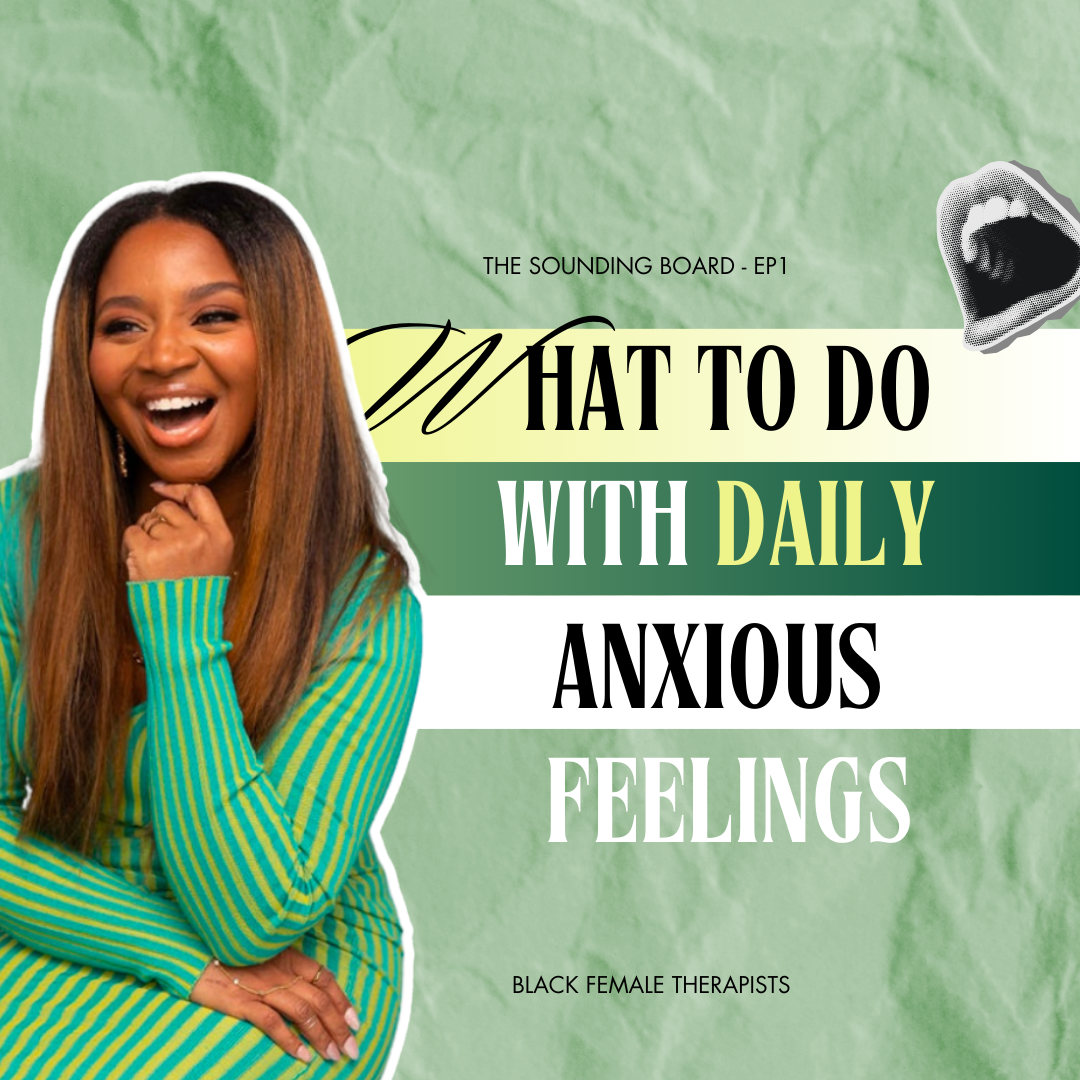"The Sounding Board: Coping, Connection, and Community"
Welcome to the inaugural episode of The Sounding Board! Amber, the founder of BFT, answers your most pressing questions about navigating uncertainty, managing emotions, and building resilience during challenging times. From addressing post-election anxiety to offering practical tips like journaling, grounding techniques, and finding a supportive community, this episode is packed with actionable advice to help you feel empowered.
Amber also dives into:
- How to identify a good therapist.
- Strategies for overcoming fear of rejection.
- The importance of flexibility and collaboration in relationships.
Whether you're seeking tools to manage holiday stress, insights on navigating vulnerability, or ways to connect with like-minded individuals, this episode provides a compassionate space for reflection and growth. Plus, discover BFT's Vent Sessions and membership options to stay connected and supported.
Submit your questions via the link in the bio, and tune in for answers in upcoming episodes. You're not alone—we're all in this together.
How to Identify Anxiety
Anxiety can manifest through physical symptoms like increased heart rate, tense muscles, sweating, or stomach issues, as well as emotional signs such as excessive worry, irritability, or difficulty concentrating. It often leads to behavioral changes, like avoiding certain situations or withdrawing socially, and cognitive patterns, such as overthinking or imagining worst-case scenarios. Common types include generalized anxiety, social anxiety, panic disorder, and phobias, each with unique triggers and characteristics.
If anxiety begins to interfere with daily life, relationships, or work, it’s important to seek professional help, especially if symptoms persist for six months or more. Managing anxiety can involve mindfulness, regular exercise, limiting stimulants, and building a structured routine. Recognizing the signs early is key to finding effective support and strategies for coping.
How to Address Anxiety: Practical Strategies for Relief
Anxiety can feel overwhelming, but there are effective strategies to address it and regain a sense of control. One of the first steps is to acknowledge your feelings rather than suppress them. Recognize that anxiety is a natural response to stress or uncertainty, and it’s okay to feel this way. Journaling can help you process these emotions by allowing you to articulate what’s on your mind, identify triggers, and reframe negative thoughts into more constructive ones.
Building a toolbox of coping strategies is essential for managing anxiety. Breathing techniques, such as deep breathing or the 4-7-8 method, can calm your nervous system and bring you back to the present moment. Grounding exercises, like focusing on your senses or listing things you can see and hear, help combat spiraling thoughts. Regular physical activity, mindfulness practices, and creating a structured routine can also provide stability and reduce anxious feelings.
Connecting with others is another powerful way to manage anxiety. Talking to friends, family, or a therapist can help you feel less isolated and provide valuable perspective. Vent sessions are a unique and accessible option for immediate relief. These are short, focused conversations with a trained professional where you can release pent-up emotions and gain tools to navigate your challenges. Unlike traditional therapy, vent sessions don’t require a long-term commitment, making them ideal for those needing quick support in moments of heightened stress.
Limiting your exposure to anxiety-inducing stimuli is also important. If the news or social media triggers worry, consider setting boundaries, such as muting accounts or scheduling specific times to consume information. When you feel overwhelmed, take breaks by stepping outside, going for a walk, or engaging in activities that help you recharge. Small acts of self-care, like a warm bath, reading a book, or listening to music, can also be surprisingly effective in soothing anxiety.
Focusing on what you can control is a key part of managing anxiety. When external situations feel unpredictable, identify small, actionable steps you can take in your personal life. Volunteering, joining a community group, or setting achievable goals can help you channel your energy into positive outlets. Vent sessions can be particularly helpful here, as the professional guiding the session can assist in identifying these steps and help you reframe situations in a manageable way.
Finally, remember that anxiety is not something you have to face alone. Reach out for support, whether through traditional therapy, support groups, or vent sessions. By addressing anxiety with a combination of emotional validation, practical tools, and community connection, you can develop resilience and move forward with greater confidence. Every small step toward managing anxiety is a step toward a more balanced and peaceful life.
Liked this conversation? Catch up on these anxiety episodes and tips:
What are some ways you address anxiety? Have you ever tried something that just didn't work?



